By Robert Tuttle
“I asked Emanuele's permission to say publicly the question he asked me and he said yes. So I will tell you. Emanuele asked: 'A little while ago my father passed away, but he had all four of his children baptized. He was a good man. Is dad in heaven?' His father wasn't a believer, but he had his children baptized. He had a good heart. And he (Emanuele) wonders if his father, because he wasn't a believer, is in heaven. The one who says who goes to heaven is God. But what is God's heart with a dad like that? What? What do you think? A father's heart. God has a dad's heart. And with a dad who was not a believer, but who baptized his children and gave them that bravura, do you think God would be able to leave him far from himself? Do you think? Speak up, come on.” [the crowd says “No”] “Does God abandon his children?” [the crowd says “No”] “Does God abandon his children when they are good?” [the crowd says “No”] “There, Emanuele, that is the answer. God surely was proud of your father because it is easier as a believer to baptize your children than to baptize them when you are not a believer. Surely this pleased God very much. Talk to your dad; pray to your dad.”
At first glance this appears to be nothing more than a very compassionate and understanding man comforting a grieving child. However, a careful examination of exactly what the Pope said reveals it was something much more. It was a lie.
I can understand the temptation to lie in a situation such as this. Who could possibly be so cruel as to tell a grieving child, “Sorry kid, your dad is suffering and burning in hell”? But is that the only alternative option to an outright lie? Francis, according to the Catechism of the Catholic Church, is the “Vicar of Christ” (para.882). The term "vicar" comes from the Latin word vicarius, which means “instead of,” therefore, the Pope is (again according to the Roman Catholic church), Christ's representative on earth. How is lying to a child representative of Christ? Francis could easily have told the child that God is just and holy, and very patient with sinners, always giving us the possibility to hear the truth. He could have simply told the child that God was in control of all things and not to worry. He could have told the child any number of things other than telling him his dad was in hell, and still keep from lying about it. And yet, he chose to lie.
To make matters worse, he was not content to simply give the child a private answer. He chose to share it with the entire crowd that was gathered there.
Now, it is important to understand that Francis did not actually say the man was a “non-believer” or that he wasn't a believer. Francis actually used the word ateo, and it means the same thing in Spanish as it does in Italian. It is the word for atheist. It was Francis' understanding that the man was an atheist; and with this understanding in mind, Francis addressed the crowd.
Francis told the crowd, “(Emanuele) wonders if his father, because he [was an atheist], is in heaven.” The obvious answer, the Scriptural answer, is no. Atheists reject God. They reject Christ. Those who die while rejecting Christ go to hell. This is basic Christianity. This is actually part of the gospel, since, if one does not understand they are bound for hell, they will not understand their need for a savior.
The Pope went on, “His father [was an atheist], but he had his children baptized. ...The one who says who goes to heaven is God.” The Pope was correct in saying it is God who says who goes to heaven, and He has given us this information in His word. For example:
“For God so loved the world, that he gave his only Son, that whoever believes in him should not perish but have eternal life.” (John 3:16 ESV)
“Whoever believes in the Son has eternal life; whoever does not obey the Son shall not see life, but the wrath of God remains on him.” (John 3:36 ESV)
“Truly, truly, I say to you, whoever hears my word and believes him who sent me has eternal life. He does not come into judgment, but has passed from death to life.” (John 5:24 ESV)
Francis continues to address the crowd, “But what is God's heart with a dad like that? What? What do you think? A father's heart. God has a dad's heart. And with a dad who was [an atheist], but who baptized his children and gave them that bravura, do you think God would be able to leave him far from himself? Do you think? Speak up, come on.” [the crowd says “No”] “Does God abandon his children?” [the crowd says “No”] “Does God abandon his children when they are good?” [the crowd says “No”] “There, Emanuele, that is the answer. God surely was proud of your father because it is easier as a believer to baptize your children than to baptize them when you are [an atheist]. Surely this pleased God very much. Talk to your dad; pray to your dad.” And this is where Francis not only lied to Emanuele, but he also lied to the entire crowd. And not only that, but the Pope presented a false gospel to everyone who heard his words.
Scripture tells us in 2 Thessalonians 1:7-10,
“7 and to grant relief to you who are afflicted as well as to us, when the Lord Jesus is revealed from heaven with His mighty angels 8 in flaming fire, inflicting vengeance on those who do not know God and on those who do not obey the gospel of our Lord Jesus. 9 They will suffer the punishment of eternal destruction, away from the presence of the Lord and from the glory of His might, 10 when He comes on that day to be glorified in His saints, and to be marveled at among all who have believed, because our testimony to you was believed.”
I will admit that it is at least remotely possible that before he died, Emanuel's atheist dad heard the gospel and believed, and came to know Jesus as his Lord and Savior; but I cannot say with any degree of certainty that he did. More importantly, neither can Francis. And yet, with only the understanding of the fact that the man was an atheist who had died, Francis stated that for no other reason than he had his children baptized, that after he died God would not leave him far from Himself. In essence, the Pope stated the atheist went to heaven after he died.
Francis then involved the crowd in his heresy by asking them if God would leave a dead atheist “far from Him,” to which the crowd answered “No.” Emanuele asked the Pope if his dead atheist dad was in heaven; and when the crowd affirmed Francis' words that God would not leave his dad far from Himself, Francis told Emanuele, “There...that is the answer.” The Pope then reinforced the idea that Emanuele's dad was in heaven by telling the child to pray to his dad. (Roman Catholicism teaches its adherents to pray to people who have died and gone to heaven, believing they – as well as Mary – intercede for them).
There is no question that Francis lied to both Emanuele and the crowd, and lying is not representing Christ on earth. What does God have to say about lying and liars in His word? Quite a bit actually, and none of is complimentary to those who lie. Colossians 3:9 tells us, “Do not lie to one another, seeing that you have put off your old self with its practices.” Here we are not only being told not to lie, but also that lying is a practice of unrepentant sinners. Lying is serious business, and it is made even more serious when we read Proverbs 6:16-19 where we read that God hates, among other things, a liar. lying is an abomination to God, and He hates liars. Even more so, in 1 Timothy 1:9-11 we see that liars are included in a list of the lawless and disobedient; and, in Revelation 21:8 we read that those who lie as a pattern of their life will be cast into hell with other unrepentant sinners who die in their sin.
Pope Francis made it clear that an atheist who dies in his sin will go to heaven if he has a good heart (as evidenced in this case by having his children baptized). Again, this is contrary to God's word. Jesus said in John 14:6, “I am the way, and the truth and the life. No one comes to the Father except through Me.” This excludes atheists – who reject Christ, from entering heaven. Acts 4:10-12 tells us that salvation is found in no one else, for there is no other name under heaven given to me by which we must be saved. Again, for an atheist who has rejected Christ, there is no salvation, and say there is, is nothing less than a false gospel.
Re-read the passage at the top of this post. “But even if we or an angel from heaven should preach to you a gospel contrary to the one we preached to you, let him be accursed. As we have said before, so now I say again: If anyone is preaching to you a gospel contrary to the one you received, let him be accursed.” (Galatians 1:8-9)
If someone, anyone, preaches a false gospel that is contrary to the gospel of Jesus Christ as presented in Scripture – as Pope Francis did, “LET HIM BE ACCURSED”
Francis seems to place great stock in the man having his children baptized, and apparently thinks God would contradict Himself by making an exception for this man because of this. Actually, this is not too far fetched in Roman Catholicism, which teaches a person who is baptized in the Roman Catholic church, regardless of what they believe, is given salvation. This is, of course, just as contrary to God's teaching in His word as is Francis' false gospel. This is, however, what the Roman Catholic church teaches.
According to “Fundamentals of Catholic Dogma” by Dr. Ludwig Ott (a book highly regarded and endorsed by Roman Catholic clergy), “Baptism effects the forgiveness of all punishments of sin, both the eternal and the temporal.” And, “Baptism is necessary for all men without exception for salvation.” Furthermore, according to the Roman Catholic Council of Trent, “if [anyone] denies that the merit of Jesus Christ is applied both to adults and to infants by the sacrament of baptism rightly administered in the form of the Church, let him be anathema.”
God's word states, “For by grace you have been saved through faith. And this is not your own doing; it is the gift of God, not a result of works, so that no one may boast.” (Ephesians 2:8-9); and Titus 3:5 states, “He saved us, not because of works done by us in righteousness, but according to his own mercy, by the washing of regeneration and renewal of the Holy Spirit.” So here we have two gospels. The first, which is God's gospel, tells us we are saved by grace through faith, and not by any works of righteousness (such as baptism) that we might do. The other gospel, the Roman Catholic gospel, tells us we are saved by baptism. The Roman Catholic gospel is in contradiction to the gospel as presented by God in His word. Therefore, the Roman Catholic gospel is a false gospel. So it is easy to see why Francis had no problem presenting a false gospel to the crowd.
The standard response from many Roman Catholics to this is, the works referred to in Ephesians 2:8-9 and Titus 3:5 are the works of the law, and that baptism doesn't save, but rather imparts to the one being baptized the grace necessary for salvation. However, we need look no further than God's word and Roman Catholic dogma to refute these objections.
Romans 4 tells us that Abraham was saved by faith and not be any works of righteousness; and those works of righteousness could not possibly be referring to works of the law, as Abraham's salvation occurred prior to the law being given. Furthermore, as Genesis 15 tells us, Abraham was saved by faith even prior to his obedience to circumcision, which did not occur until Genesis 17, many years later.
And when we examine Roman Catholic dogma (as noted in Ott's book), the sacrament of baptism, as with all the sacraments, “confer[s] regeneration, forgiveness, the Holy Spirit and eternal life” as long as the minister performing the sacrament does so in the proper manner: “For the dispensing of this grace, it is necessary that the minister accomplish the sacramental sign in the proper manner.” When done in the proper manner (i.e. the official Roman Catholic method of baptism, or the other sacraments), “Baptism confers the grace of justification.” And, just to be clear, according to Roman Catholic dogma, “Neither orthodox belief, nor moral worthiness is necessary for the validity of the Sacrament on the part of the recipient.” Therefore, according to Roman Catholicism, even an atheist who has rejected God, and rejected Jesus Christ, can be saved if only they get baptized. They don't have to believe in God, they can still reject Christ, they just need to be baptized. Of course, there is no evidence that Emanuele's dad was ever baptized. Perhaps Francis was simply applying the baptism of Emanuele and his siblings to his atheist dad.
Clearly, the Roman Catholic church preaches and promotes a gospel that is contrary to the gospel presented by the Lord God Almighty in His word; and while the Roman Catholic church at its Council of Trent may have cursed God for having a gospel different than theirs, it is God's pronouncement of anathema upon those who preach a gospel different from His that will hold eternal consequences.

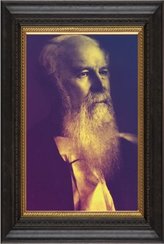



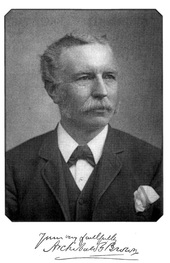

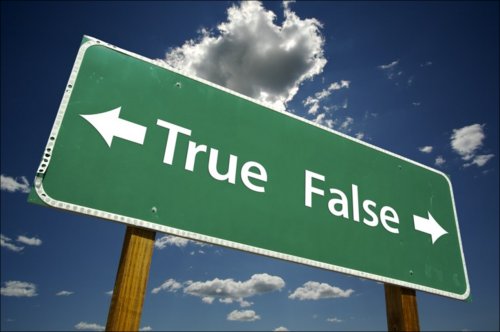
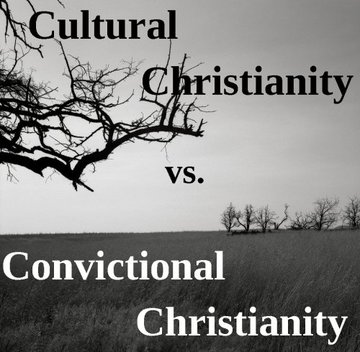
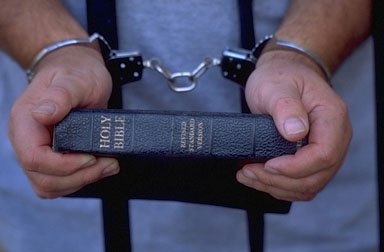



 RSS Feed
RSS Feed
